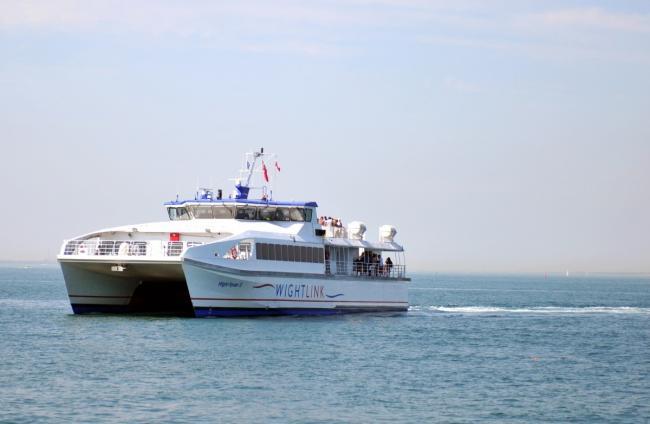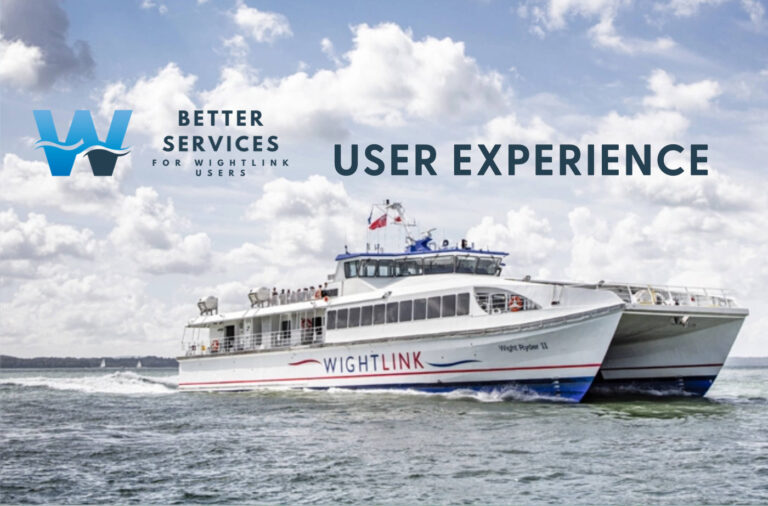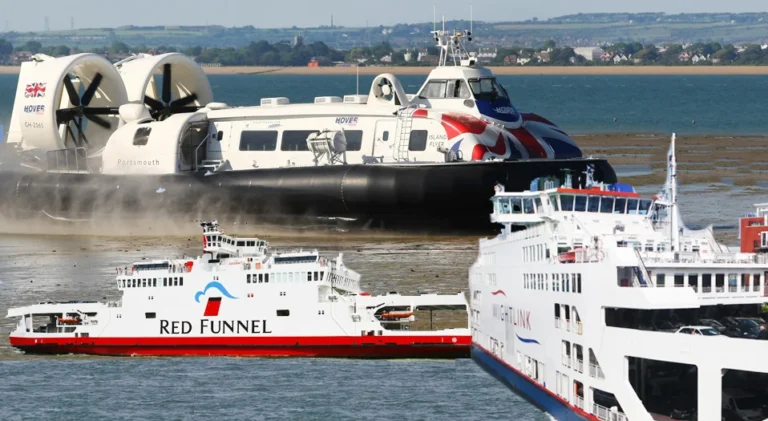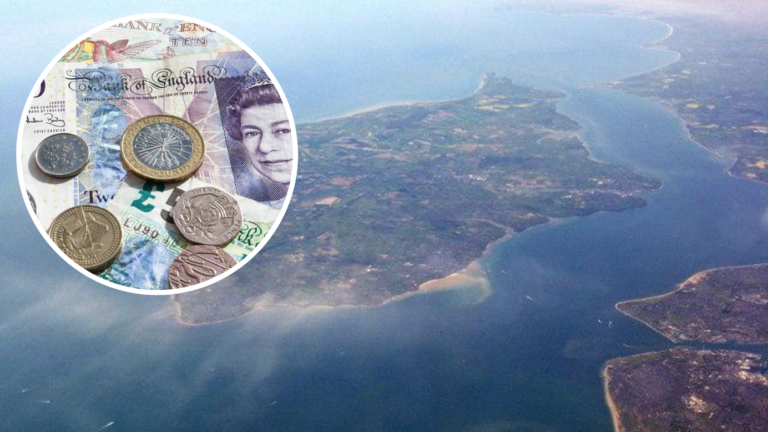Public ownership would give Isle of Wight control over ferries
In the May 28 edition of the County Press, reader Karl Hunter called on Bob Seely, in an open letter, to state his position on Wightlink’s service during the pandemic. Here Bob Seely sets out his From Bob Seely MP, Northwood House:
image – Isle of Wight County Press
Firstly, I thank Mr Hunter for his thoughts. As he can imagine, I regularly receive emails from Islanders on this issue.
Second, can I stress from the outset that I understand the problem.
We are dependent on ferry services, sometimes for work, but also for health and other visits to the mainland.
Clearly, we live on an Island, but affordable and reliable ferries should be a right, not a luxury.
Third, I am asking for Islanders to write to me on this issue, and I will share responses with the new council leadership.
Fourth, in my response I will be straight-talking, as ever.
Read more: Karl Hunter’s original letter
Covid and current services
I am sorry for the poor service recently. This is unquestionably related to Covid. At the beginning of the pandemic, working with the government and council, we secured financial emergency support for the ferries. Without that, the firms risked bankruptcy, and while a few might say ‘great’, the damage to the Island would have outweighed any conceivable benefits.
We needed to keep a limited, lifeline service: for medical treatment, for NHS and emergency staff coming to the Island, and to keep shelves stocked with food and essential items.
As part of a joint approach between myself, the council and the government, it was agreed in the first lockdown that Wightlink would halt FastCat services while funding was given to Hovertravel to run a Ryde/Portsmouth lifeline passenger service. Yarmouth Wightlink and Red Funnel Red Jet services were also suspended.
However, Government support was withdrawn months ago. Since then, Wightlink and Red Funnel have brought back services, but slowly because of limited demand.
While the market for car ferries is near to normal, the passenger service market is only 30-40 percent of normal.
Fewer people are still using public transport. Therefore, there has been reluctance to put back services with very low usage. This has clearly affected regular users, such as Mr Hunter.
Why? Because these are private companies without any public service obligation.
Do I like that? No. It has been bad for the Island.
Am I happy with the ownership of the ferry firms?
Mr Hunter talks of Wightlink profits. I am glad he does. It was me who exposed Wightlink’s ownership structure two years ago when I feared another private equity firm was going to buy a share of it. By generating negative publicity, I had hoped to scare away city sharks who would load it with even more debt and sell it on.
The CP covered the story at the time.
As far as I can see, Wightlink pays little, if any, tax on profits, but does pay dividends to shareholders. Its margins are higher than the franchised rail services.
It’s loaded with debt as it has been bought and sold over the years. That debt makes up a chunk of your ticket. Fuel and personnel make up the other elements, and for years Wightlink has had overmanning thanks to its inheritance of British Rail union sweet-heart deals. That’s thankfully changing but it has taken a long time.
As far as I can see, the buying and selling of Wightlink over the past 25 years has represented the unacceptable face of capitalism, as well as questionable union practises and, in the past, weak management — I shall no doubt get letters of abuse for pointing these out, but these are the facts.
The current owners of both Wightlink and Red Funnel are at least better than previous ones and appear to want to invest to build the business over time rather than load with debt and sell on. They are taking a longer-term view, rather than the flip-and-sell model of private equity.
I do not in any way criticise the current management teams, both of which are made up of folks who understand their wider social responsibilities to the Island. They do their best to engage.
The problem has been with the companies owning both Wightlink and Red Funnel who have arguably not seen them as public service lifelines but as opportunities to load debt and pay dividends whilst paying as little tax as possible.
Some additional facts
If you check prices, as I have tried to do, the cheapest prices now are slightly less than the standard Sealink prices in the 1980s. However, that is dependent on buying a book of tickets, which can stretch budgets.
What infuriates Islanders is having to pay £200 for a return, which is significantly a lot more in real terms.
There have been failings recently, but overall reliability has improved and there has been investment in new services and vessels. I sometimes hear romanticised stories of British Rail and Sealink, but services in the 1980s and 1990s weren’t great, and reliability has been above 95 per cent.
Pricing policy like in Spain, so that passenger ferries are a third cheaper for journeys that start on the Island.
• More co-ordination between rail and ferry services (as Mr Hunter points out).
• Possibly the introduction of a small tax (£1-2) on car journeys that start on the mainland, to go into an island fund, to support improving the environment, or some valuable projects on the Island.
• I would preferably want Wightlink to offer an affordable, 30-minute passenger service from Ryde throughout most of the day, to link properly with the new 30-minute Island Line rail services, when it starts to operate.
• More guaranteed spaces for Islanders at reduced rates on car ferries.
• The chance to book passenger ferry seats, for vulnerable and elderly passengers, for peace of mind.
Who can do this?
• Do I have power to make this happen? No, sorry. I could pretend that I do, but I don’t. The transport authority locally is the council. The council could make this happen. However, up until now, and for very understandable reasons, it has been reluctant to do so. The other institution that has power here is the Department for Transport.
• I wrote to the government recently, again making the case for reform of Solent ferries. My letter to the Government is here. It is a bit long, but it’s important that we always make a full and detailed case.
• Once the new council gets settled in, I am hoping they will want to discuss with me what they feel the options are.
In the immediate future the aim will be to improve passenger services that Mr Hunter uses.
After that, it will be to see how the new rail structures will influence linked ferry services from Portsmouth, but also Lymington, to the Island. After that, we should all us think about the service we want from the ferries, noting that changes may come with costs.
• I am hoping that passenger services will return to normal this summer.
• I also hope that Wightlink and the other ferry firms will now join the debate to respond to this letter and Mr Hunter’s original email.
This letter was originally published in the Isle of Wight County Press.




